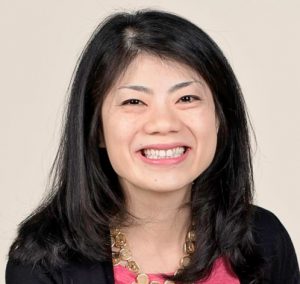BBL Talk: Yi Ting Huang, “Technology and the future of clinical services: Language, communication, and disabilities”
Yi Ting Huang, Associate Professor, Department of Hearing and Speech Sciences, University of Maryland
Title: Technology and the future of clinical services: Language, communication, and disabilities
Abstract: Speech-language pathologists and audiologists are at the front lines of improving functional language and communication across the lifespan. These include treating wide-ranging disabilities such as language disorders, autism, stuttering, hearing loss, traumatic brain injury, stroke, dementia, etc. The success of early diagnosis paired with rapidly changing US demographics have introduced two broad challenges. First, clinicians are faced with massively increasing caseloads, and new populations that were unseen decades ago. Second, clinicians are a 93% white workforce and 56% of clients identify as people of color, and this raises a host of challenges related to cultural and linguistic diversity. While existing technology has focused on specific client needs (e.g., hearing aids, AAC devices), developing tools that can increase the efficiency and efficacy of service delivery in a heavily labor-intensive industry will improve quality of life for individuals with disabilities at scale. To do so, I will introduce three on-going projects that leverage 1) telehealth to provide language therapy for children with Developmental Language Disorder, 2) automated methods for multilingual transcription to accurately assess language knowledge in bilingual children, 3) video-calling platforms for create augmented spaces for communication for autistic and neurotypical adults. These examples demonstrate how technology can reach clients that are geographically inaccessible, offer services that typically take substantial time and expertise, and alter environments that provide communicatively relevant information. I will close by considering the wealth of opportunities at the intersection of language, communication, and disabilities, and invite others to brainstorm technology applications to address urgent needs in health care access, disproportionality in diagnosis, and diversity and inclusion in the workplace.
Bio: Yi Ting Huang is an Associate Professor in the Department of Hearing and Speech Sciences. She received her Ph.D. in Developmental Psychology at Harvard University and trained as a post-doctoral fellow in Cognitive Psychology at the University of North Carolina at Chapel Hill. Dr. Huang’s research focuses on how young language learners acquire the ability to coordinate linguistic representations during real-time comprehension. She explores this question by using eye-tracking methods to examine how the moment-to-moment changes that occur during processing influence the year-to-year changes that emerge during development. She has applied this approach to examine a variety of topics including word recognition, application of grammatical knowledge, and the generation of pragmatic inferences. Other interests include the relationship between language and concepts, language comprehension and production, and language development and literacy. She is currently a member of the Maryland Language Science Center and the Program in Neuroscience and Cognitive Science.
Join us in the lab or on Zoom (register here).



